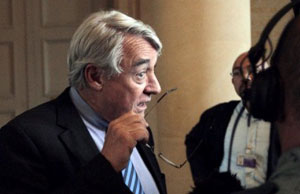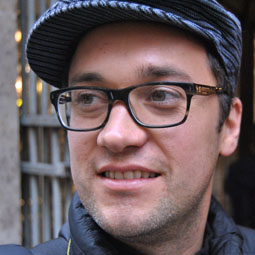Dual citizenship in the cross-hairs?
Claude Goasguen, a conservative member of France's ruling UMP party and staunch supporter of President Nicolas Sarkozy, said on Wednesday that he was renouncing many of his proposals on reforming dual citizenship. Goasguen back peddled just hours after excerpts of a report he penned were published by the daily Libération, claiming the press got a hold of a “draft text” that was not meant for distribution.
The lawmaker’s ideas included forcing all French to swear their desire to be French, asking French of foreign-born parents to give up any dual citizenship status, and requiring applicants of French citizenship to renounce their previous nationality.
 In a preamble to the report, Goasguen warned that French identity is being dangerously “drained of its substance because of globalization,” and called dual citizenship “a vector for potential conflicts of interests and allegiances”.
In a preamble to the report, Goasguen warned that French identity is being dangerously “drained of its substance because of globalization,” and called dual citizenship “a vector for potential conflicts of interests and allegiances”.
This short-lived scandal is the latest chapter in a now recurrent and dubious “debate” in France over national identity. Last year Sarkozy’s government sponsored three-months of public meetings on what it means to be French. Widely perceived as a fiasco, the initiative was later quietly folded into ministerial meetings.
Critics of Sarkozy say that questioning dual citizenship is just a way for the president to recast a political debate that only a handful of ultra-nationalist French voters think important.
Analysts in France like to talk about Sarkozy’s “hunt” for voters in “National Front territory”. In effect, Sarkozy’s 2006 presidential bid owes at least some of its success to stealing away support from sympathizers of the anti-immigration National Front party.
Recent local elections in France and a growing number of opinion polls show that now the opposite is true: voters who backed the UMP in the past are now casting ballots for the National Front and its surging presidential candidate Marine Le Pen.
Unlike the UMP, the National Front is clear on the issue of dual citizenship. In a letter to lawmakers in May, Marine Le Pen said attributing French citizenship to immigrants was watering down French identity and “criminal”.
So, as President Sarkozy reloads ahead of his 2012 re-election shootout, many here think Goasguen was really aiming for the hearts (and votes) of French nationalists. Others see a more worrying form of target practice.
Interestingly - revealingly I would say - Goasguen’s exhaustive 197-page report on dual citizenship fails to suggest how to deal with fully fledged, cheese-loving French who request an additional nationality (say American or British).
Concerned as it is with the waning Love of Country, Goasguen’s proposals ignore cases in which a French person admits by deed that their single French citizenship is insufficient.
Instead he is picking off immigrants who hold French nationality (for personal interest perhaps, but still) in high esteem, and setting his sight on the French-born children of immigrants who have never called any other country home.




7 Comments
Post new comment